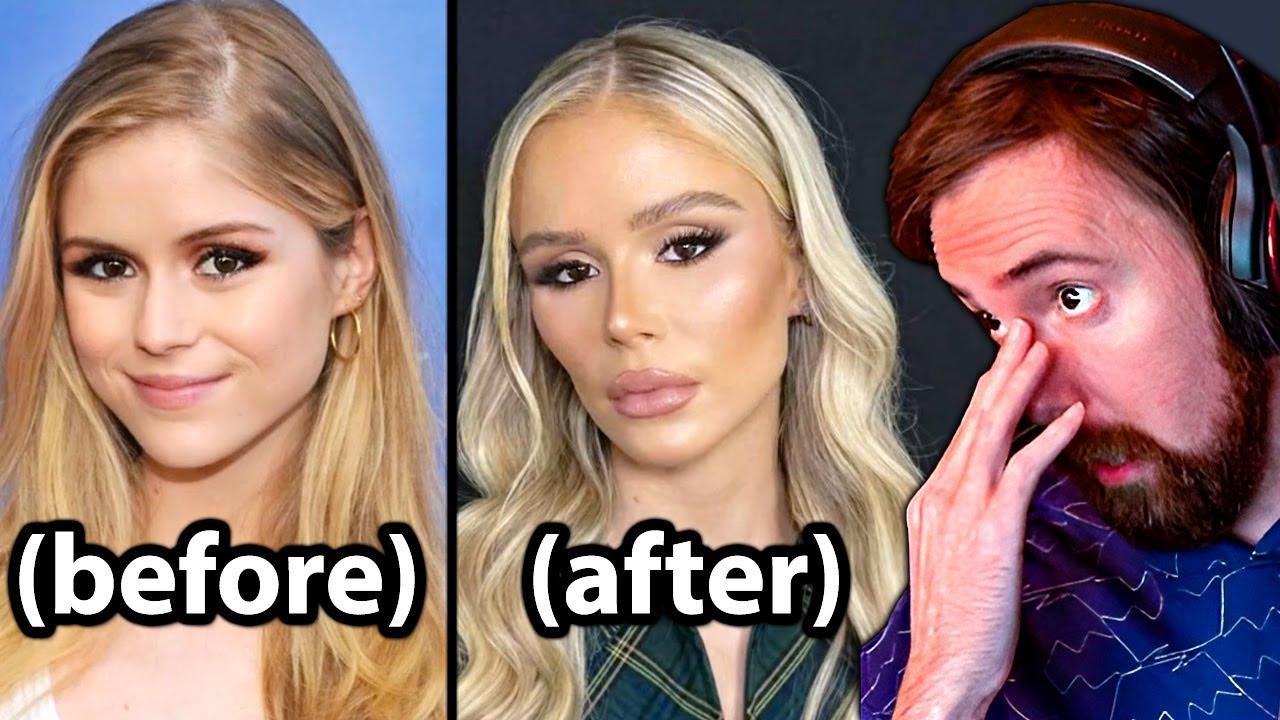Plastic surgery is a social illness. People want to change their appearance, but end up looking like a hooker. It's like injecting poison into your face - it's a vice, an addiction. You can't just go around changing yourself to fit an ideal. We need to stop going too far with this plastic madness and focus on the real things that matter.
Plastic Surgery and the Media 📰
Inhaltsübersicht
Plastic surgery has become a common topic in the media, with many celebrities being scrutinized for their surgical transformations. A recent example of this is a young actress whose pictures from a decade ago have surfaced, and her noticeable changes have sparked conversation, often leading to judgment and criticism. It's not uncommon for individuals to undergo plastic surgery in an attempt to enhance their appearance, but the way it's portrayed in the media often contributes to negative attitudes and stigmatization.
Perceptions and Self-Image 💭
The portrayal of plastic surgery in the media can distort perceptions of beauty and create unrealistic standards. This can have a negative impact on individuals' self-image, leading to feelings of inadequacy and the desire to change one's appearance. The media often glamorizes surgical alterations, perpetuating the belief that physical perfection is the key to success and acceptance.
The Mental and Emotional Toll 🧠
Undergoing plastic surgery can take a significant toll on an individual's mental and emotional well-being. It may stem from a deep dissatisfaction with one's appearance, driven by societal pressures and a desire to fit a certain mold. This can lead to the development of body dysmorphia and other psychological disorders, ultimately affecting an individual's overall quality of life.
The Ethical Dilemma and Social Commentary 🤔
The prevalence of plastic surgery in the media raises ethical questions and societal commentary. It encourages a culture of conformity and vanity, prompting young individuals to adhere to unrealistic beauty standards and undergo drastic alterations to their appearance. This obsession with physical perfection can have damaging effects on mental health and self-worth, perpetuating a cycle of dissatisfaction and conformism.
Cultural Influences and Gender Dynamics 👫
The media's portrayal of plastic surgery largely perpetuates harmful gender dynamics and cultural influences. Both men and women are affected by societal ideals of beauty, often succumbing to pressures to alter their appearance in order to adhere to these norms. The media's portrayal of plastic surgery exacerbates these issues, fueling the desire for unattainable perfection and further reinforcing toxic beauty standards.
Schlussfolgerung
The influence of the media on perceptions of plastic surgery is a complex and multifaceted issue. It's crucial to encourage open conversations that challenge societal beauty norms and promote self-acceptance. The ethical considerations and emotional implications of undergoing plastic surgery should be highlighted, fostering a greater understanding of the toll it can take on individuals' well-being. At its core, it's important to emphasize the value of self-love, diversity, and authenticity in opposing the detrimental effects of media-perpetuated plastic surgery ideals.
Wichtigste Erkenntnisse:
- The media's portrayal of plastic surgery can distort perceptions of beauty and create unrealistic standards.
- Undergoing plastic surgery can take a significant toll on an individual's mental and emotional well-being.
- The prevalence of plastic surgery in the media raises ethical questions and societal commentary.
- Both men and women are affected by societal ideals of beauty, often succumbing to pressures to alter their appearance in order to adhere to these norms.
- Emphasizing the value of self-love, diversity, and authenticity is crucial in opposing the detrimental effects of media-perpetuated plastic surgery ideals.






